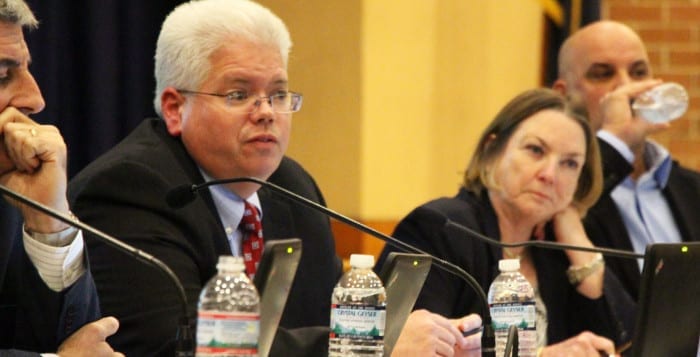Despite the New York State Comptroller’s audit report, Rocky Point school district is sticking to their guns.
Last week, on Nov. 19, New York State Comptroller Thomas P. DiNapoli released completed audits of four school districts, including Rocky Point. In the audit, he claimed that the school district exceeded the four percent statutory limit on its fund balance between July 1, 2013 and March 31 of this year.
According to the audit, during the 2009-10 to 2013-14 fiscal years, the Board at the time had accumulated $13.1 million. However, the district only used $1.2 million, and experienced a surplus in their unrestricted fund balance. Rocky Point’s Superintendent, Michael Ring, said this fund is utilized in emergency situations where the district cannot afford necessary expenditures — this includes funding programs or accommodating a special needs child, among other reasons.
Ring refuted the comptroller’s financial report.
“Bottom line for us is that if we were over the four percent, our external auditors would be required to report that,” Ring said in a phone interview.
But the Superintendent said no such claims were filed. He added that the Comptroller’s odd method of counting the school’s fund balance is unusual, as excess money from one school year is added to the previous year’s closing bonds.
Ring mentioned that the Comptroller acknowledged the district’s fund balance was below four percent within that time period. Now, the district is between 5.4 to 7.8 percent, according to the Comptroller’s report. Taxpayer dollars contribute to the district’s unregistered fund balance. An excess of money in this fund means taxpayer dollars go to waste. Ring assured meeting attendees that is not the case for the district.
For Rocky Point school board members, acquiring funds for the unrestricted fund balance is a guessing game. The school district must base their fund balance amount on possible future expenditures that the school may not be able to afford without this fund balance. Typically, the district budgets its money conservatively. The district’s actual expenditures are within 0.2 percent of what they budgeted.
Some community members weren’t phased by the Comptroller’s report. When asked about it, Rocky Point resident Mary Heely said she was surprised by the news. She stood by the Superintendent’s word that the district didn’t exceed the statutory limit of its unrestricted fund balance. With the failure of the district’s bond, Heely, like some other community members, had other financial issues on her mind.
“According to Mr. Callahan,” said Heely, referring to Rocky Point Board of Education member Sean Callahan, “we may be in serious trouble if there was a major event in this district. I think that’s the bigger concern at this point, as far as the lack of funds that could be necessary in the future.”






